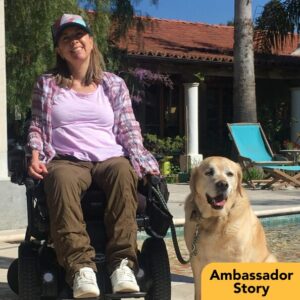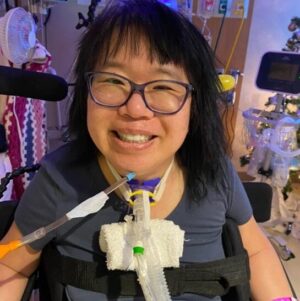Melissa Tuff was diagnosed with kidney disease at age 16. She began dialysis at 17 and waited nine years for a lifesaving kidney transplant. After more than 10 years with her new kidney, she is back on dialysis. She is fundraising with Help Hope Live while awaiting a second transplant. Melissa partners with multiple organizations to increase organ donor awareness, influence legislation regarding end-stage renal disease, and support fellow kidney disease fighters.
We asked Melissa about her transplant journey and the driving forces behind her advocacy work on behalf of kidney transplant candidates and other patients across the country.
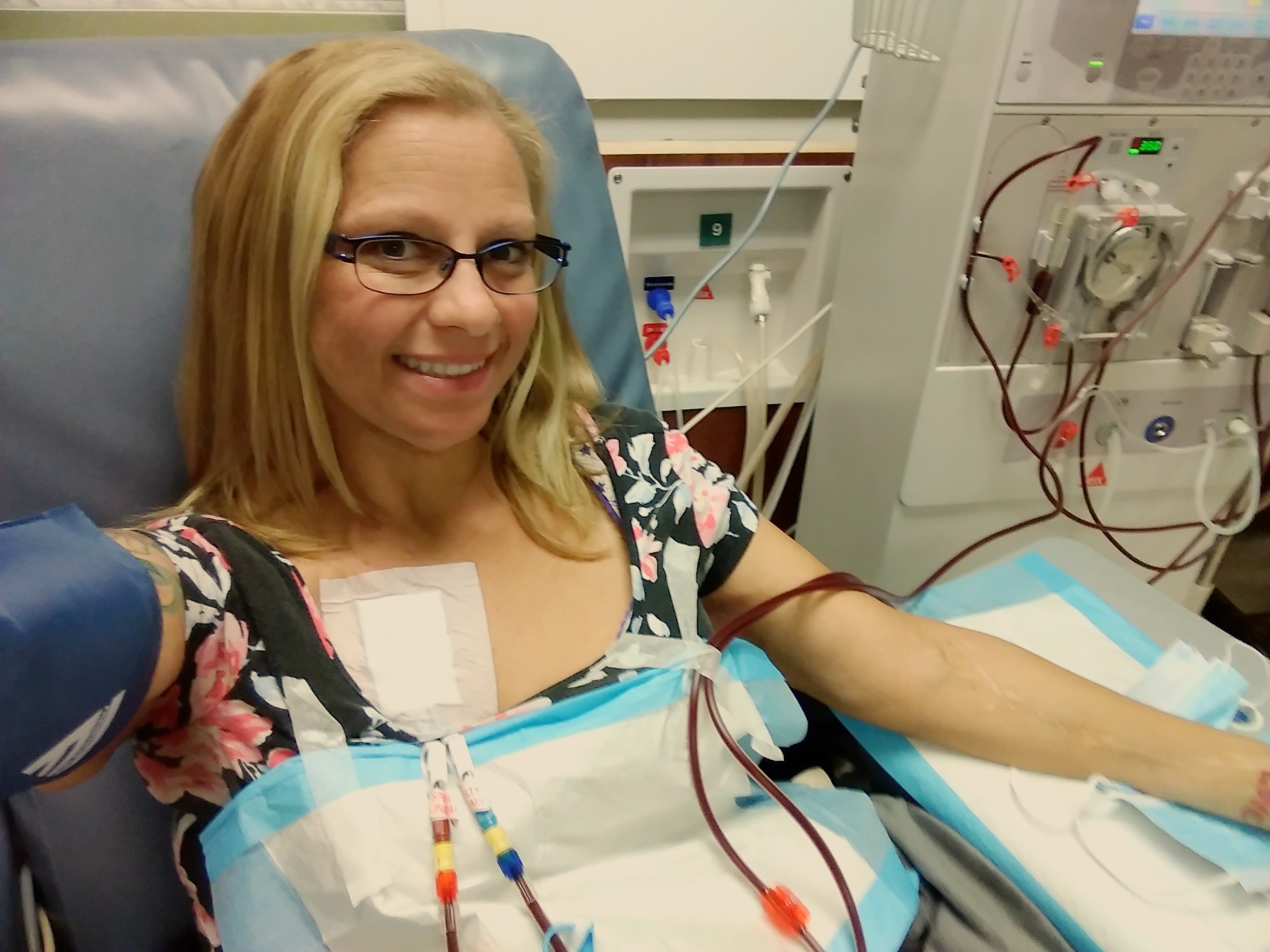
Help Hope Live patient Melissa Tuff is an advocate and volunteer
Is transplantation an emotional process?
I was 16 when I faced my first transplant. I was thrown into dialysis and the transplant process with absolutely no idea what to expect. It was a very scary and traumatizing experience for me. Now facing a second transplant, I have had time to absorb everything and have learned a lot from going through the process before, so I know what to expect. All the information I have gathered over the years helps me to process my emotions in a healthy way and allows me not to feel as overwhelmed as I have in the past.
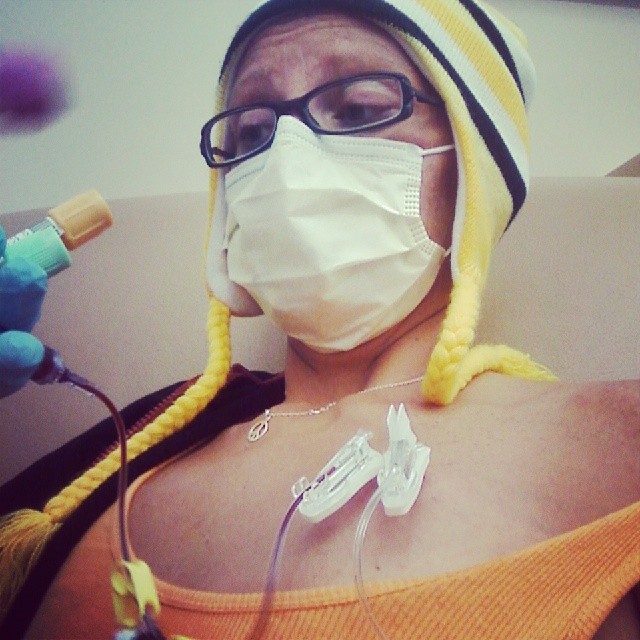
Melissa documents her physical and emotional journey online
Going into the transplant process for a second time evoked a variety of emotions for me. There is the fear and apprehension of potentially having to return to a life of dialysis if I do not find a living donor; the frustration that my body is slowly rejecting my kidney and there is nothing I can do about it; the gratitude for my donor who has given me nearly 11 wonderful years of life free from “the machine”; the feelings of disappointment that there may have been something I could do differently to prevent rejection; the aggravation associated with the length of the process to get listed; and the annoyance of dealing with the hoops I have to jump through, the delays and the costs incurred.
What gives you strength on the waiting list?
My family has not been involved in my fundraising or health care, so I have relied strongly on my chosen family at the Center for Spiritual Living in Cape Coral and my acquaintances on social media to provide support throughout my journey. I honestly do not know what I would do without them! Their words of support and the people who hold my continued health in their prayers give me the strength to keep fighting on days when I just want to give up.
How do you serve as an advocate and volunteer to support other kidney disease patients?
I volunteer at LifeLink of Florida setting up and sitting at organ donor registration booths at public events, hospitals and fairs. I am a Peer Mentor for the National Kidney Foundation, offering a confidential space in which dialysis patients, transplant recipients and chronic kidney disease warriors can share their experience and receive guidance. I’m a member of the Kidney Advocacy Committee and a Region 4 Leader, helping to influence policies regionally and with a yearly trip to Washington, D.C.
I am also the Secretary for the Organ Transplant Recipients of Southwest Florida support and advocacy group. With quite a full plate, I am still taking on more opportunities to advocate! I will begin volunteering with the American Association of Kidney Patients soon.
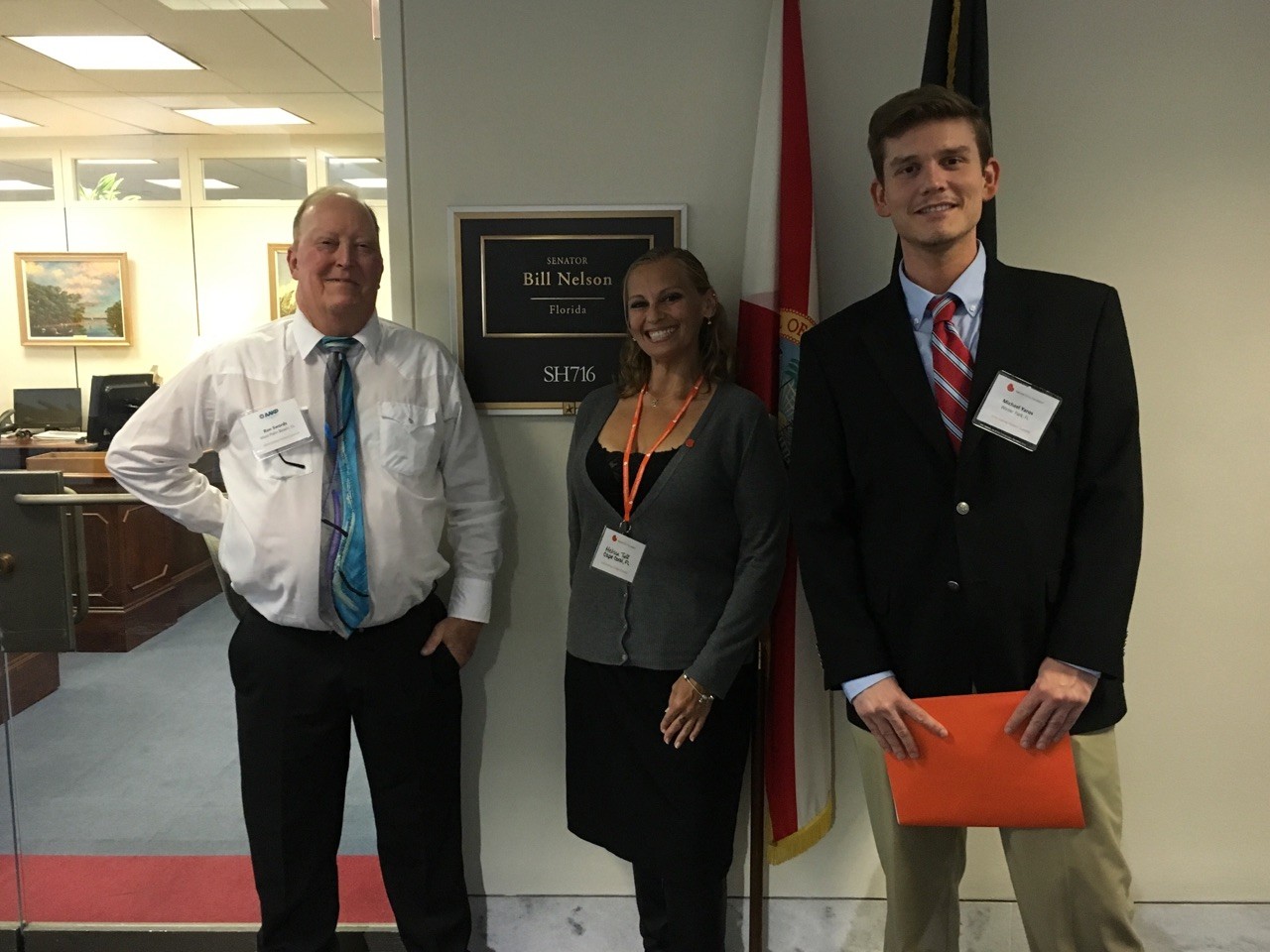
Melissa petitions for positive changes to renal disease legislation
How did you find Help Hope Live?
I began fundraising to help with some of my health care expenses after I was let go due to my declining health. In summer 2012, I was balancing a medical assistant job with a customer service position at a local grocery store. I was exhausted all the time, but had no choice but to keep going to make ends meet. Through exhaustion and hemoglobin issues, I became dependent on blood transfusions, requiring two units of blood every two weeks. I developed another condition which required me to wear an IV at home 12 hours per day to remove the excess iron from the transfusions.
While I tried my best not to miss work days as I balanced my health and my financial needs, and even signed out of the hospital at times against medical device to avoid missing a shift, I was told by my managers that “my health had become an issue.” I was devastated. I loved my job and it gave me a sense of accomplishment to help and care for other patients.
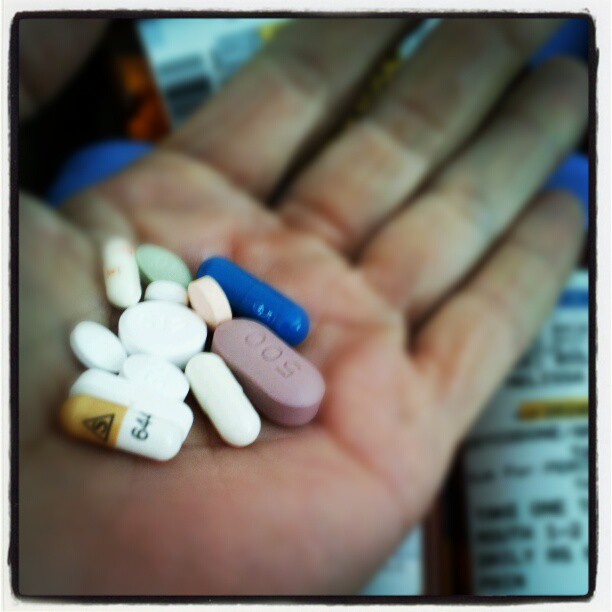
Daily life with kidney disease made it impossible to maintain full-time work
What could have been a tragedy or a failure became an opportunity for me: I was free to do the advocacy and support work that I would be most appreciated for, which would be far more rewarding than any paycheck.
I started using GoFundMe because it was what everyone seemed to be using. It was mildly successful. Then I met with the Tampa General Hospital Transplant Team and was told that I would need to raise nearly $13,000 before I would even be considered as a candidate for the kidney transplant waitlist. I knew I needed help, and that’s when I found out about Help Hope Live.
Finding Help Hope Live and working directly with a Fundraising Coordinator has been a godsend. I received more donations within the first few months of setting up a Help Hope Live campaign than I had in over a year of fundraising on my own with GoFundMe. The fact that Help Hope Live is an established and trusted nonprofit organization made working with them a no-brainer! The staff is extremely helpful, supportive and attentive when assisting with questions related to my campaign, which is not something you can say about crowdfunding sites.
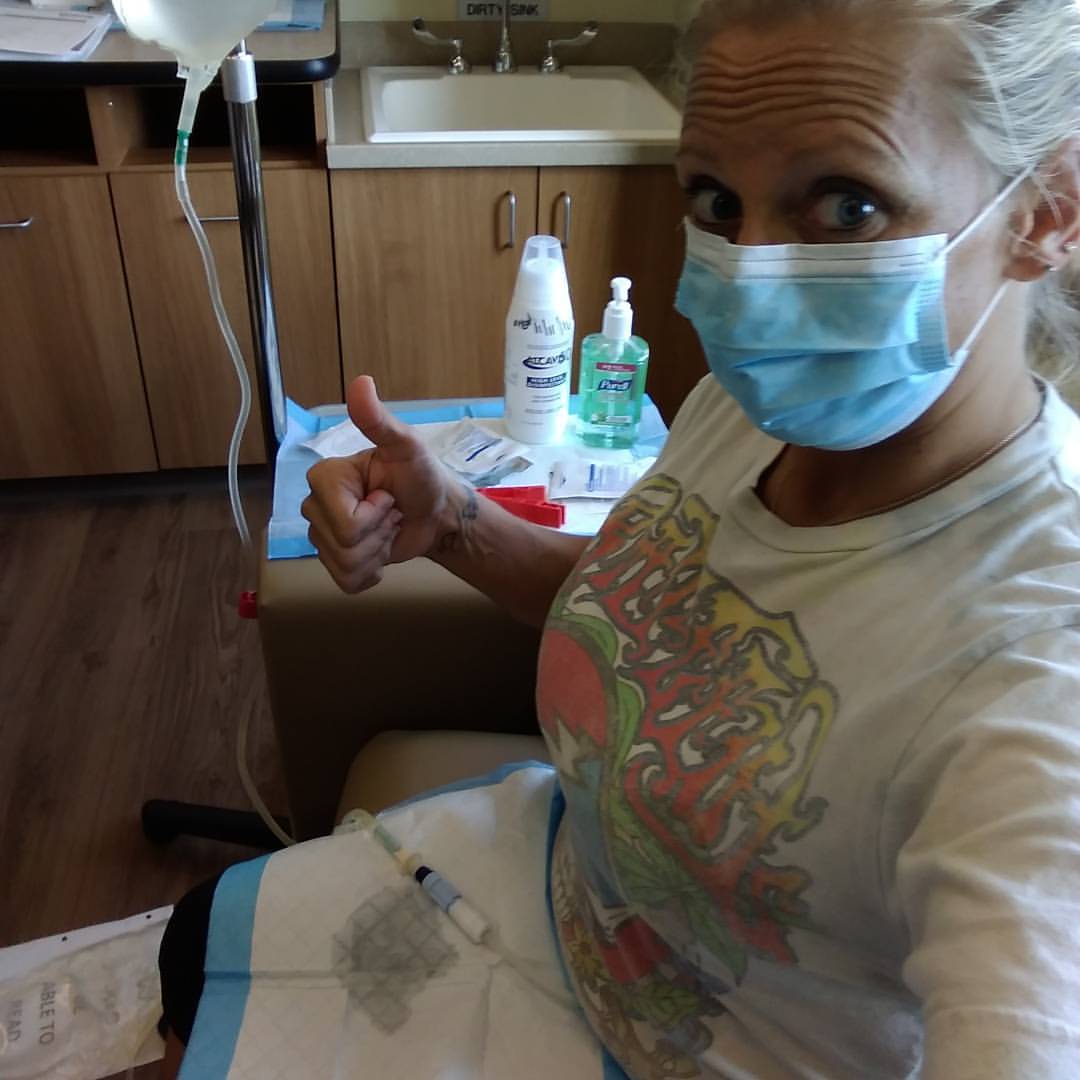
Melissa “received more donations with Help Hope Live” than with GoFundMe
What are you currently fundraising for?
A lot of testing and medical clearances are required before getting approved for the transplant list. Because I only have Medicare coverage, I have to pay 20% of whatever the test or office visit costs plus the physician’s fee. My expenses add up very quickly and can be overwhelming, which is why I thank God for the ability to submit bills to Help Hope Live that I cannot pay myself.
Help Hope Live has alleviated some of my worries regarding paying for the transplant and health care leading up to surgery. Now I am working on keeping my only source of transportation running so I can get to all of my appointments and, eventually, to Tampa for transplant.
What do you think is one of the biggest misconceptions about transplantation?
People see both dialysis and transplantation as cures when really they are both forms of treatment. A transplant is not a cure for the underlying condition. This misconception may be due to the fact that many recipients go back to work, travel or start or grow families after transplant. Most of us appear to “go back to normal” after receiving a transplant. But people don’t see the post-transplant medication regimens, treatments, follow-up appointments, fear of illness and rejection, health and life insurance struggles and, of course, the medical bills, which never stop. That is why fundraising and long-term financial planning are necessary.
What is your advice for someone facing the kidney transplant waiting list?
Be aggressive regarding your health care. No one can be a better advocate for you than you. Do not be afraid to question your health care providers to make sure they are willing to work with you rather than making decisions for you. Do your own research and discuss your findings with your providers. I have personally changed providers when I have found that they were not providing me with the level of care that I deserve.
When it comes to our lives, we cannot afford to put our health in someone else’s hands without taking some responsibility ourselves. The best way to ensure that you receive quality care is to speak up. Just like the saying goes, “The squeaky wheel gets the grease.”

“Speak up,” Melissa tells transplant patients, and “do your own research”
Why is advocacy important in your life?
It is extremely positive for anyone living with an illness or life-altering injury to advocate for related causes and participate in awareness events. Not only is it educational and inspirational to those you share your experiences with, but it is also therapeutic and rewarding for you as you talk about your life with others. My volunteer work in this area is something that I look forward to and it makes me feel like there is a purpose behind my condition.
Now that I fall into the “underinsured” category myself as a patient, I realize just how unfair it is. People who need lifesaving transplants have enough to worry about without having to be concerned about how they will be able to afford to stay alive. In many cases, these people are not well enough to work full time to receive private health care coverage, but they are not sick enough to qualify for government benefits. We are the ones who are forever stuck in a cycle of medical debt and struggles to get the coverage we need for a better quality of life.
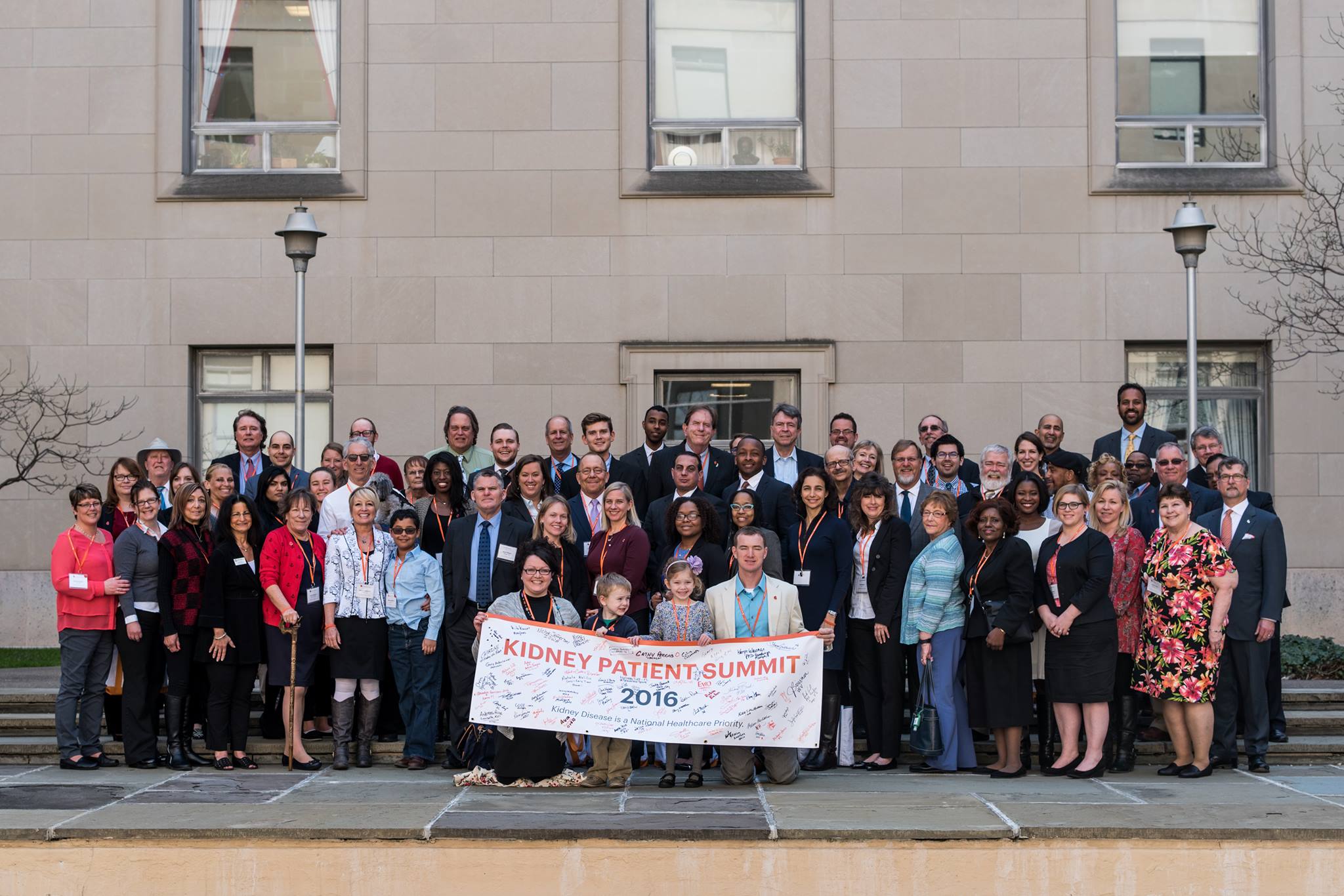
Participate in advocacy can help you to feel educated, inspired and rewarded
What does Hope mean to you?
Hope to me is more than just a word. It is a way of life. What comes to mind is, “Hold Onto Prayer Every Day” which is exactly how I keep my cheerful disposition despite what I may be going through at any time. I live with the joyous expectancy of the good to come. To me, that is what hope is all about.
I know it can be hard to remain positive when things appear to be going wrong. But we are still alive, still here to love and be loved. We are stronger than what has tried to take us down. Treatments and medical advances are being made daily, and we are very lucky for that. My favorite quote from St. Francis of Assisi helps me a lot when I am at a loss: “Start by doing what’s necessary. Then do what’s possible. Suddenly, you are doing the impossible.”
If you would like to learn more about Melissa or potentially become a living donor to change her life, find her on Facebook or at www.MelNeedsAKidney.com.

